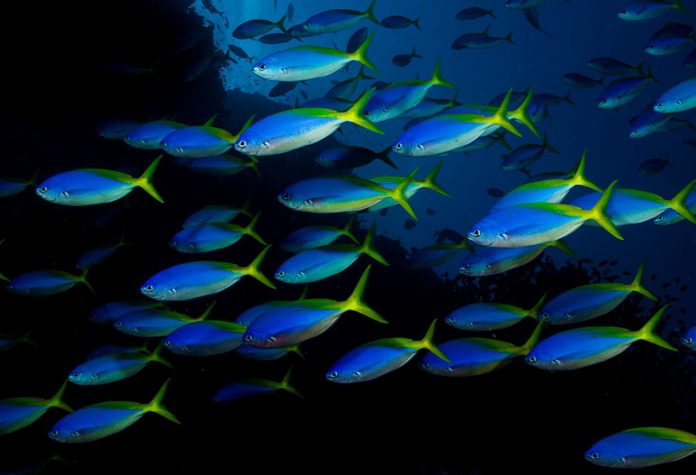The University of Adelaide researchers discovered that ocean acidification and global warming are disrupting the way fish communicate in groups.
“Fish show gregarious behaviour and cluster in shoals which helps them to acquire food and for protection against predators,” says project leader Professor Ivan Nagelkerken.
“Many gregarious tropical species are shifting poleward under current ocean warming and interacting in new ways with fish in more temperate areas.”
Under controlled lab conditions, the researchers studied how species interacted and behaved differently in response to temperature and acidification changes.
The increasing carbon dioxide concentration in the atmosphere is affecting ocean surface temperatures and contributing to ocean acidification. While warming and acidification are distinct phenomena, they have a detrimental effect on marine ecosystems.
“We found that tropical and temperate fish species tend to move to the right when coordinating together in a shoal especially when spooked by a predator, but this bias significantly diminished under ocean acidification,” adds Angus Mitchell who performed the experiments.
“Mixed shoals of tropical and temperate species became less cohesive under future climate conditions and showed slower escape responses from potential threats.”
The work was co-authored by Professor David Booth of the University of Technology, Sydney.
“Our findings highlight the direct effect of climate stressors on fish behaviour and the interplay with the indirect effects of new species interactions,” according to him.
The researchers’ findings were published in the journal Global Change Biology.
“Strong shoal cohesion and coordinated movement affect the survival of a species: whether to acquire food or evade predators,” explains Professor Nagelkerken.
“If the ability for fish to work together is detrimentally affected it could determine the survival of particular species in the oceans of the future. Tropical species may initially fare poorly when moving into new temperate areas.”
Source: 10.1111/gcb.16022
You were reading: Ocean warming and acidification can disrupt fish shoals
